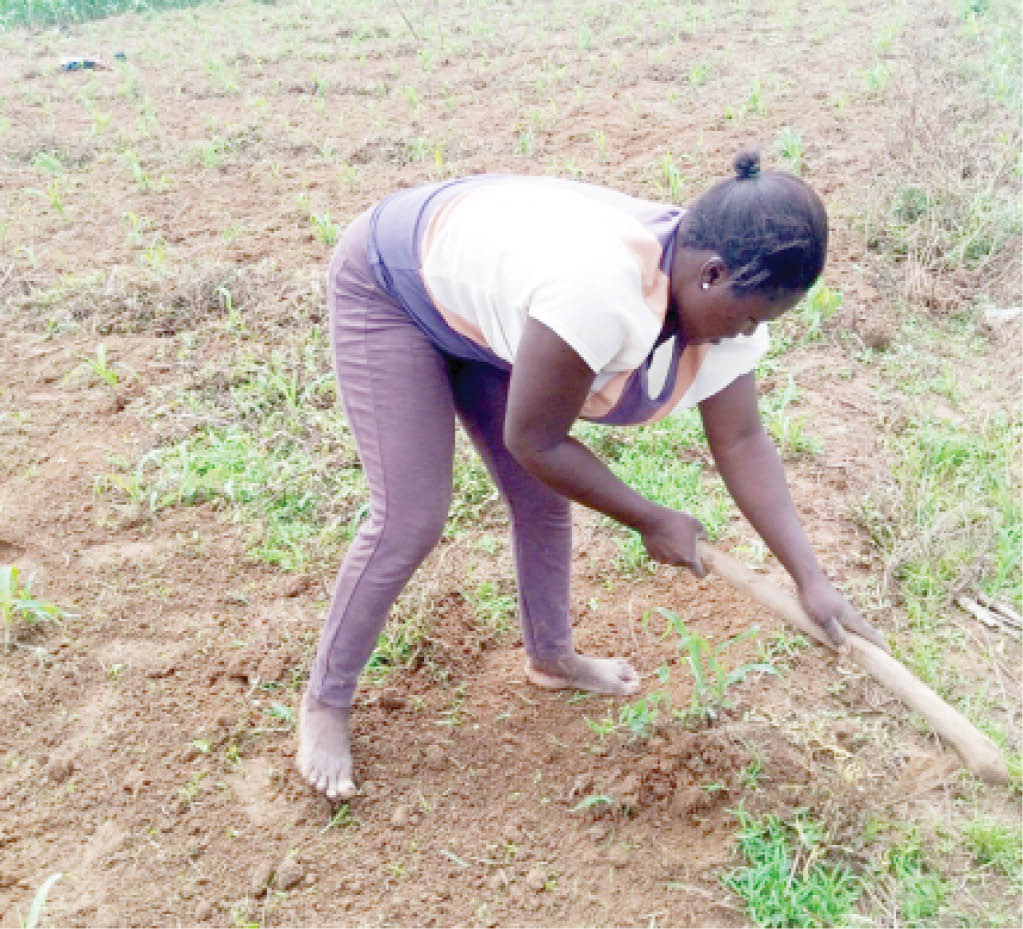Why Jos women are quitting jobs, businesses for farming
Some female farmers in Jos, the Plateau State capital, have expressed satisfaction with their decision to quit their jobs and concentrate on farming, saying farming is now proving more beneficial to them than their earlier jobs or businesses. Our correspondent in the state reports that it is now common to see more women on farms […]

Serah Philemon weeds her maize farm
Some female farmers in Jos, the Plateau State capital, have expressed satisfaction with their decision to quit their jobs and concentrate on farming, saying farming is now proving more beneficial to them than their earlier jobs or businesses.
Our correspondent in the state reports that it is now common to see more women on farms in many areas of Jos than men.
For some of the women, farming is out of necessity as they do not have paying jobs or businesses, but for majority, it is due to its benefits.
The women who quit jobs and businesses said farming paid them more, held better prospects, and that they had no regrets being farmers; aside being proud of the occupation.
Our correspondent who interacted with some of the female farmers observed that they are so committed, hardworking and spend about eight hours on their farms daily.
Mrs Sarah Philemon, 28, mother of two, who hails from Bassa Local Government Area (LGA), said she was earlier into tailoring but had to quit to concentrate on farming having discovered she got more from it.

She said she had just finished harvesting and selling her tomatoes and had planted maize on the same farm, adding that she made over N200,000 from the tomatoes.
Aside tomatoes and maize, Mrs Philemon said she cultivated other crops like potato, pepper and onion.
Another farmer, Mrs Atong James, 38, mother of four, whose farm is in the Lamingo area of Jos, said she was a health worker in a private hospital but had to quit to concentrate on farming.
Mrs James said she cultivated maize and cassava during the rainy season and then tomatoes and other vegetables during the dry season with water from a dam.
She explained that she had been farming for about 10 years and had been making considerable earning, adding that she mostly hired workers and paid them between N1,000 to N1,500 each daily.

She said most of the farming work was manually done because they could not afford tractors and other modern farming machines, adding that their major challenge was fertiliser.
On her part, Mrs Bridget Nyam said she followed her parents to the farm until she got married about 11 years ago.
Mrs Nyam said after marriage she tried selling banana for a few years but discovered that she was not making much from it and therefore returned to farming.
According to her, she uses the proceeds from the farm to support her children’s school fees, house rent, food at home, among other domestic necessities.
Mrs Nyam further noted that her farm work hardly interfered with her domestic chores, explaining that she usually woke up at 5.am to prepare her children and husband for school and work respectively before going to the farm, and that after work she returned and prepared dinner.
She, therefore, called on girls without any tangible work to venture into farming and that they would be amazed by the gain, adding that farming was far better than roaming the streets and running after men for survival.
